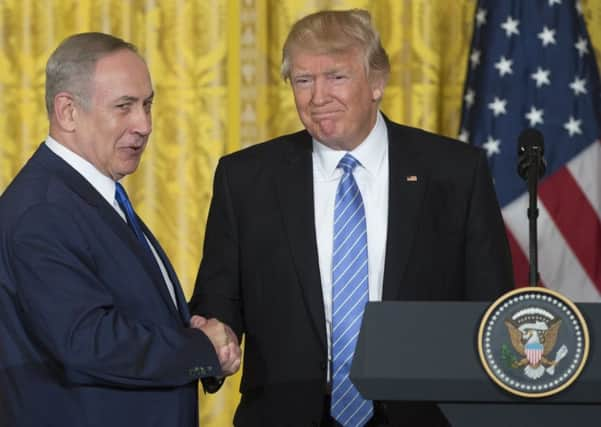Peers call for new Middle East policy


The British Government should support the Iran nuclear deal, loathed by the Trump White House, and seriously consider recognising Palestine as a state in order to boost the Middle East peace process, the report said.
Mr Trump’s US administration “has the potential to destabilise further the region”, the House of Lords International Relations Committee warned.
Advertisement
Hide AdAdvertisement
Hide AdOn Iran and the Israel-Palestine situation, where Mr Trump has abandoned the long-standing commitment to a two-state solution, the report said “the US president has taken positions that are unconstructive and could even escalate conflict”. “The mercurial and unpredictable nature of policy-making by Mr Trump has made it challenging for the UK government to influence US foreign policy so far, a challenge that is not likely to ease,” the committee said.
In a wide-ranging report on the region the peers, led by Tory former Foreign Office minister Lord Howell of Guildford, criticised the UK’s response to the crisis in Syria.
British “confusion and disarray” over Syria was a reflection of the contradictions in international policy on president Bashar al-Assad’s regime, the report said.
“The objective of displacing Assad, as a prerequisite of any settlement, with the current means and policy, has proved unachievable. Despite the chemical attack and the recent escalation of military conflict Assad, with Russian support, remains in power.
“There are no good options available in Syria but the recent chemical attack, the urgency of the humanitarian crisis, with the potential to destabilise the EU and countries of the Middle East with refugees, requires the UK, and international community, to redouble its efforts to achieve a negotiated solution.”
The peers also called for the government to take a tougher line with Saudi Arabia over its actions in Yemen, including the possibility of suspending arms exports as a last resort.
There was a “considerable degree of public concern” about UK-supplied weapons being used on civilians and relying on assurances from the Saudis was “not an adequate way” of implementing obligations under the international Arms Trade Treaty.